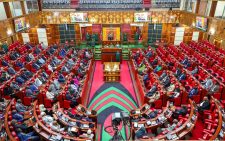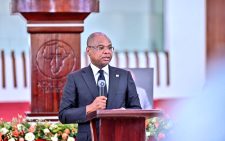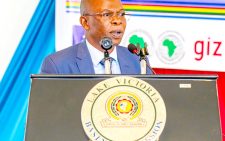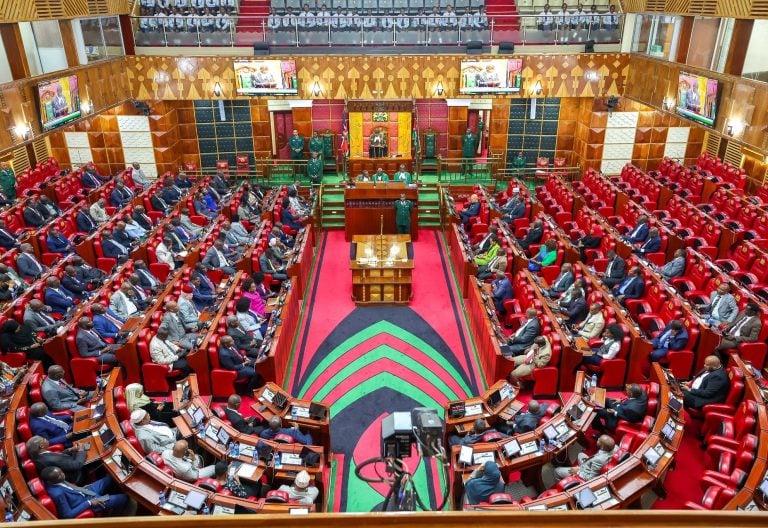Picking up the pieces: Performance arts deeply hurt by coronavirus crisis

Performance arts were deeply hurt by the coronavirus crisis, but the players are slowly picking up the pieces while balancing the urge to hit the stage and keeping everyone safe. Manuel Ntoyai looks at the current theatre scene and ways being devised to have it back on its feet
As the world smarts itself over the fact that the new normal is the way forward, a number of sectors are already forging ahead trying to balance the subtle acts of improving their status and the stakeholders around them, and that of following the recommended health guidelines set by health authorities.
The Kenya Cultural Center (KCC) was not spared either from the ravaging effects of the Covid-19 pandemic.
The institution, which boasts an improved space of 375-seat theatre, has seen most of its project scaled down. However, it still continues to improve the quality of theatre productions post Covid-19.
“We’ve had to look at some of the recommendations we got the last time we had competitions. We realised that the quality of the entries was poor.
So, we decided that before we could engage any further in another competition, we needed to carry out training first.
We asked artists who were interested in theatre to send in applications and then involved trainers who have long-standing experience in both theatre and musical productions,” KCC acting CEO Michael Pundo told Spice.
The quality question
For a long time, people have complained about the quality of productions, which in turn has affected the whole industry. This has been due to a number of factors including lack of proper training and resources.

“When I joined the theatre world almost a decade ago, the industry lacked appeal.
Even those who had a chance to visit theatres abroad shared their experiences on what was happening out there and when compared to what was happening here, we faired badly,” says spoken word artiste Dominic Kimitta, adding that his experiences at the Bayimba Festival (Uganda) and Zanzibar International Film Festival led him to work under the tutelage of Tanzania’s Mrisho Mpoto.
“While under Mpoto Gallery Theatre, I learned a lot and with the exposure that I got, it helped me navigate the industry.
However, there is always that expectation that Kenya can be better and it is good to see now that we have such trainings that will take us closer to Broadways standards at some point,” he says.
“Creatives need to reinvent themselves in order to get acquainted with what is happening in the rest of the world.
At the moment, there are a number of trainings going on and we need to take advantage of such in order to improve the quality of productions coming through,” says Kenyatta University lecturer and Lake International Pan-African Film Festival director Zippie Okoth.
At the moment, according to Pundo, KCC’s main focus is to improve the quality of productions landing on the national stage. We are doing this with everyone from different counties.
He says: “We are using practitioners from different backgrounds to impart knowledge, and taking the artists through a special coursework that will be conducted in three phases.
The first will involve scriptwriting, directing, production, choreography and marketing.
The second one will get them into specialising into the aforementioned categories and give them a project that will eventually see the best among them picked and get a fully sponsored production.
Once this is successful, we will embark on a tour of the counties showcasing the work produced.”
Digital adaptation
He adds that one of the challenges they are addressing is how to adapt to virtual teaching and learning.
To address this, KCC is conducting virtual trainings that have seen different thespians from different counties participate.

“As an institution we believe that theatre performance opportunities should continue to be available to all thespians, whether in-person or virtually,” says Pundo.
The centre is also advocating for creatives to go digital in all fronts, so as to be at par with the rest of the world.
He intimates that KCC will launch a downloadable mobile app with an aim to offer a better platform for its members to showcase their work.
“This will see something such as the pay per view component and other forms of subscriptions generate revenue for our artistes,” he adds.
Talent development officer and spoken word artiste Kennet B says such programmes will help transfer the social and emotional support that theatre experiences provide to online learning environments.
“During the pandemic, many actors, directors, writers, and others have vacated urban cultural centres for locals offering more space and affordability.
While away, they’ve learned how to better work and collaborate remotely; from submitting video auditions to doing developmental or preproduction work via Zoom,” he says in conclusion.










